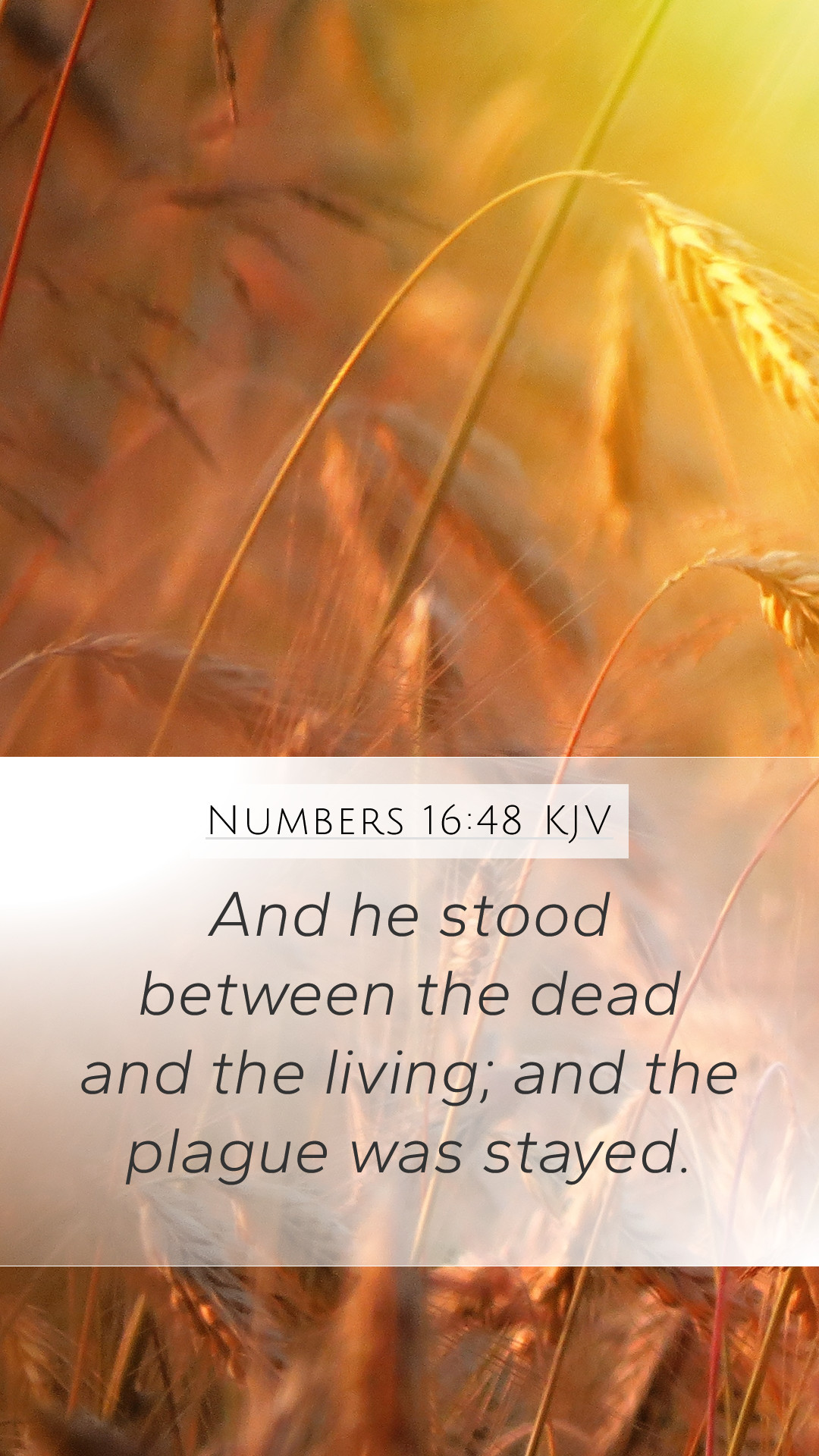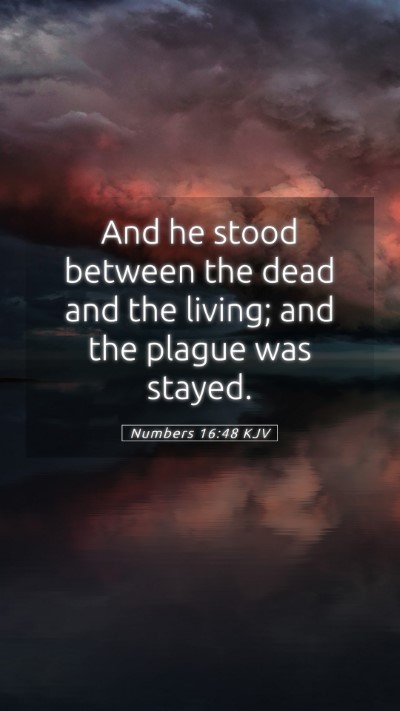Understanding Numbers 16:48: A Comprehensive Commentary
In Numbers 16:48, we encounter a profound moment of intercession, where Aaron stands between the living and the dead, halting a devastating plague. This verse encapsulates themes of atonement, sacrifice, and the power of prayer, providing significant insights into God's mercy and judgment. Below is a detailed analysis combining insights from public domain commentaries by Matthew Henry, Albert Barnes, and Adam Clarke.
Verse Context
Numbers 16 describes the rebellion of Korah and his followers against Moses' leadership. As a consequence of their rebellion, God’s judgment results in a plague. Aaron's action of making atonement stands out clearly in this desperate situation.
Verse Analysis
Numbers 16:48 states:
"And he stood between the dead and the living; and the plague was stayed."
The Role of Aaron
Aaron's Intercession: Aaron’s act of standing between the dead and the living symbolizes a pivotal role of a mediator. According to Matthew Henry, Aaron’s intercession was crucial during a time of great calamity, demonstrating the necessity of human intermediaries in seeking God's mercy.
The Nature of the Plague
Divine Judgment: Albert Barnes elaborates that the plague's existence reflected God's judgment against rebellion. The rapid spread of the plague highlights the severity of divine discipline against sin, accentuating the seriousness of disregarding God's appointed authority.
Significance of Intercession
Symbolism of Mediation: Adam Clarke emphasizes that Aaron's role as a priest signifies the ultimate priestly intercession of Jesus Christ. Just as Aaron intervenes to stop the plague, Christ intervenes for humanity, providing eternal atonement, which is a crucial aspect in understanding the verse's prophetic nature.
Spiritual Insights
- The Power of Prayer: Aaron’s act manifests the vital importance of prayer and intercession in averting disaster.
- God's Mercy: The halting of the plague illustrates that God desires to show mercy, especially when approached through sincere intercession.
- The Consequence of Sin: The plague serves as a stark reminder of the consequences resulting from sin and rebellion against divine authority.
- The Significance of Leadership: The verse underscores the responsibility leaders have in standing for their people, highlighting accountability before God.
Application for Daily Life
Understanding this verse encourages believers to emulate Aaron's spirit of intercession in their own lives. Believers are called to pray for one another and seek to bridge the gap between God and those who are lost. The significance of mediation brings to light how individuals can influence and change the trajectory of others through prayer.
Concluding Thoughts
Overall, Numbers 16:48 offers a profound biblical lesson on the intersection of judgment, mercy, and intercession. This verse's implications extend into practical applications for daily life, encouraging believers to engage in prayer and uphold the values of leadership within their communities of faith.
Cross References
- Exodus 32:30-32 - Moses also intercedes for the people.
- Psalm 106:23 - God would have destroyed Israel without Moses’ intercession.
- Hebrews 7:25 - Jesus as our eternal intercessor.


